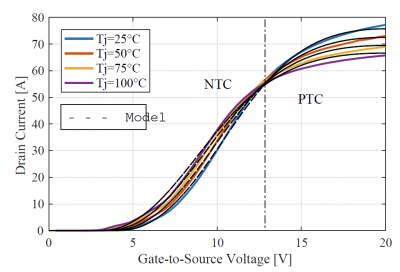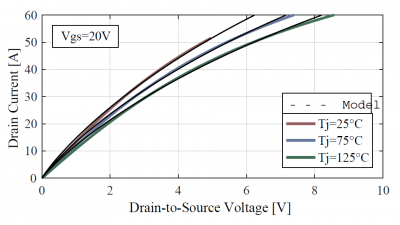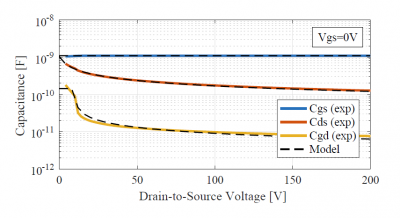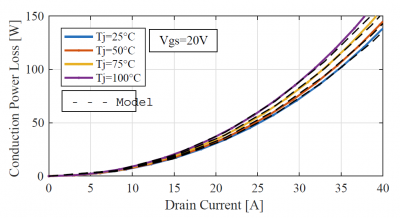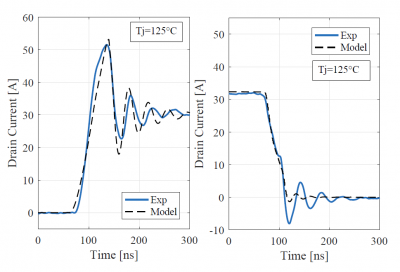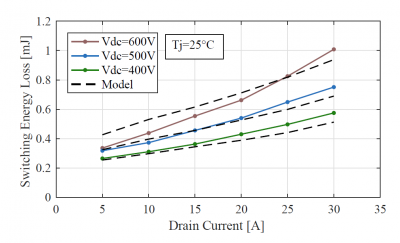CREE C2M0080120D
| (One intermediate revision by one user not shown) | |||
| Line 1: | Line 1: | ||
== Download == | == Download == | ||
| − | {{#dlmodel: C2M0080120D | http://www.igbtmodel.org/ | + | {{#dlmodel: C2M0080120D | http://www.igbtmodel.org/index.php?title=File:C2M0080120D.zip }} |
== Identification tool == | == Identification tool == | ||
Latest revision as of 16:17, 22 November 2016
Contents |
[edit] Download
[edit] Identification tool
The parameter extraction has been done by means of a Matlab-PSpice parameter identification tool for SiC MOSFETs called MOSPEX which you can find here. It is a user-friendly Graphic User Interface (GUI) that you can use on your own.
[edit] Tests performed
[edit] Static
Fig. 1 reports the comparison between the experimental DC Transfer curves and the simulated static output characteristics at different junction temperature values. It can be observed as the current capabilty of the MOSFET increases for higher temperatures when the gate voltage is low (NTC: negative temperature coefficient), while it decreases when Vgs is high (PTC: positive temperature coefficient).
Fig. 2 reports the comparison between the experimental DC Output curves and the simulated static characteristics at different junction temperature values.
Fig. 4 reports the comparison between the experimental capacitance measurements for a drain bias sweep (Vgs=0) and the simulated curves.
Fig. 4 reports the comparison between the measured conduction power losses and the simulated ones for increasing drain current and different junction temperatures.
[edit] Dynamic
Fig. 5 and Fig. 6 show the comparison between measured and simulated turn-on and turn-off waveforms for drain current and voltage at the following testing conditions: Id=30 A, Vdc=600V and T=125C. A Double-Pulse test circuit has been used for the measurements, and some parasitic elements have been included in the simulation to emulate the real oscillation of the experimental waveforms.
Fig. 7 reports the comparison between the measured switching energy losses and the ones estimated by the model at room temperature, for increasing drain current and for different DC bus voltage values.
